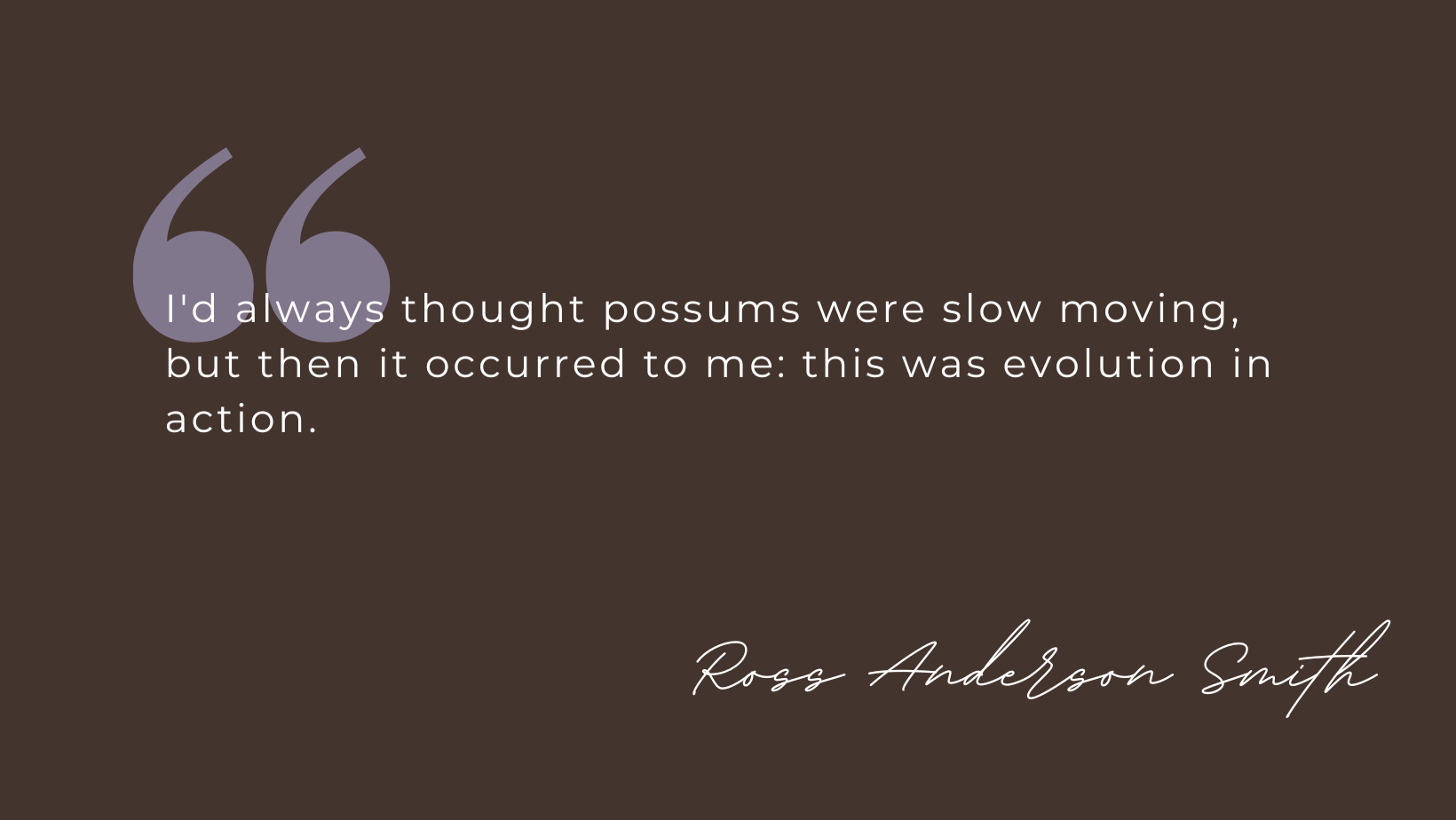Ross Anderson Smith
There is no easy life on this earth.
A possum walked toward me as I sat on the back porch drinking coffee one morning. Old and slow, his hair thin and patchy, like he had the mange. He looked at me through the slats of the jalousie window, a long look through sad eyes, eyes that seemed to say, “Thank you, but I’m tired. I’m done. It’s time.” Then he turned away and walked into the underbrush.
I believe he was the same possum who had come by my porch as a youngster some years before, giving me a look that said, “Don’t mind me, I’m just passing through.” But he’d stayed, drinking from the water dish I put out, walking past me through the yard day and night, treating me like just another piece of the furniture.
I tried to find him the next day, to give him the reverent burial we all deserve after a lifetime of public and private travails. But the brush was too dense, creating a coffin for him that I could not penetrate. All that was left was his aroma rising from the Texas heat. And then that too was gone.
Late one night long ago, shortly after I moved back to Austin, I drove over a low rise and came face to face with a possum sitting squarely in the middle of the road, standing guard, its mate lying dead at its feet. I stopped the car and sat there for a few minutes, the possum staring back at me through the headlights, knowing the threat I posed, not budging an inch. Eventually I backed down, turned around, and left it to mourn in peace.
A few years later, standing out in my carport, I heard a rustling coming from my neighbor’s back yard. A possum came out through an open fence gate, looked around for a few seconds, checking out the threat matrix, then went back again. All of a sudden, he and his missus ran out together through the gate going about thirty miles an hour. They lit out over the yard and on across the street. I had never seen possums run that fast.
I’d always thought possums were slow moving, but then it occurred to me: this was evolution in action. The ones that can dodge a car and get across the road are the ones that will procreate. The gene for speed has passed down from generation to generation since cars and roads first appeared, until now they can run faster than we can. Regardless of whether you think evolution got us here, it seems no species alive today is exempt from it —not even us.
On a more recent summer night, back when I worked as a fishmonger, I set out a large bowl of red snapper bones and bits in my back yard. This was a time when we seemed overrun with raccoons and possums, critters that nested in the old detached garages and tumbledown garden sheds that filled our neighborhood. I climbed into my hammock, said hello to the full moon that lit up the yard, and waited for the show to begin.
Sure enough, within a few minutes a line of raccoons came into view from one direction and a line of possums from another. They arranged themselves in concentric circles around the bowl, raccoons forming the inner circle, possums the middle ring, and my cats, like sentinels, sitting on the perimeter as the outer circle. Then one by one the raccoons came up to the bowl, picked out a snack, and moved on. The possums waited patiently until the raccoons were done, then came up in their own pre-destined order. The strange thing was that as they left, a raccoon would often pass within a foot or so of a possum or cat without giving any sign it was there, as if oblivious to its presence. The same happened as the possums passed by. It was like watching the celebration of some ancient mystical rite.
Our neighborhood has changed greatly since then. The old houses are being torn down and replaced, the garages and sheds going with them. With no place left to make a home, the possums and raccoons have moved on, replaced by the burrowers — foxes, skunks, armadillos, and coyotes, happy to dig a home deep into the ground. More skittish, less friendly, and, I’m sorry to say, much less likely to stop by in the morning for a chat through the windows of the back porch.



